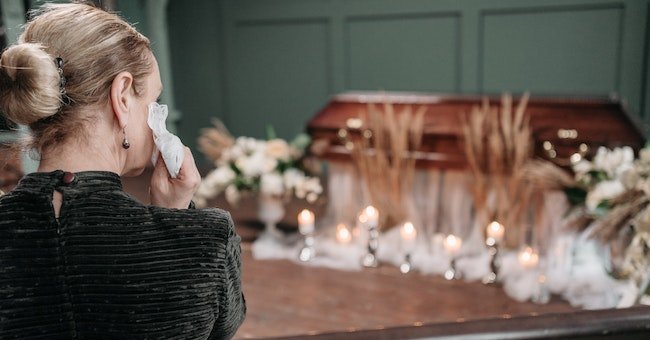How To Address A Widow, Ms., or Mrs.
When addressing a widow, use the title “Mrs.” followed by her husband’s first and last name, as in “Mrs. John Smith.” Some widows, however, may choose to be addressed as “Ms.” followed by their own first and last name, as in “Ms. Jane Smith.” It is usually best to clarify their preferred title before addressing them.
If you’re not sure if the woman is a widow, use the title “Ms.” followed by her first and last names. This is a respectful and neutral moniker that makes no assumptions about a woman’s marital status. Remember that when addressing someone, it is critical to be polite and respectful, so taking the time to clarify their preferred title is essential.
Why the Term “Widow” Matters
Losing a spouse can be one of the most stressful life experiences anyone could ever go through. Grief, change, and moving forward could take several years. One problem after losing a spouse is using the term “widow.” For some, it might appear like a trivial issue; however, it’s an essential distinction for others. Here are some reasons why the term “widow” matters.
Acknowledging The Loss
The loss of a spouse is incredibly painful and difficult to explain. “Widow” is a term used to describe a loss. “Widow” acknowledges that someone has experienced a significant loss in a portion of their life. It indicates that the individual has gone through a difficult time and that their life has been altered forever. Accepting the loss may help people feel heard, acknowledged, and respected.
If someone is widowed, the widow loses a large element of who they are. They may have been spouses for many years, and their identity has gone. The word “widow” can help someone establish an identity change. It’s a way to acknowledge that they are living a different life than they were before.
Legal And Financial Matters
In certain instances, there are instances where the term “widow” is essential for financial and legal matters. For instance, widows may have been able to get Social Security benefits, and using the word “widow” can help with the procedure. It might also be needed in probate or estate issues. Using the word “widow” can make it evident who is the legal representative and who can make decisions.
The word “widow” can show respect for those who have lost a spouse. It is a sign of acknowledging that they’re in a different place from where they were previously and are experiencing a difficult period. It may also help to prevent confusion and hurt feelings. Using the wrong terms, such as “divorcee” or “single,” could be insensitive and harmful.
The Debate Over Ms. vs. Mrs.
When speaking to females, the choice of honorific used is vital. The appropriateness of using “Ms.” or “Mrs.” has been debated for many years. Both honorifics can be used to refer to women. However, they are interpreted differently and could be different and more appropriate based on the situation. Here are some reasons that the debate over “Ms.” vs. “Mrs.” matters.
The Historical Significance Of Mrs.
“Mrs.” or the honorific “Mrs.” has been employed to refer to married women for ages. The title is associated with the marital status of women and was used to show the availability of a woman or not. The past was when women were typically classified by their relationships with males, and the term “Mrs.” indicated that a woman was someone’s wife.
The Emergence Of Ms.
“Ms.” or the formal “Ms.” emerged in the 20th century as a method to address women with no reference to the status of their spouses. The idea behind the word was to be neutral for women to be addressed, regardless of whether they might or might not be married. In addition, it was intended to offer women an option regarding their treatment and not create misconceptions about their marital status.
The Pros And Cons Of Using “Ms.”
Utilizing “Ms.” can be an effective way of avoiding making assumptions about a woman’s marital status. It’s a neutral term that can refer to every woman, regardless of whether she’s married or unmarried. However, some women might consider the phrase too formal or a sign of a feminist position. Others might feel using “Ms.” is inappropriate if they know a woman has been married.
The Pros And Cons Of Using “Mrs.”
Using “Mrs.” can be an opportunity to recognize a woman’s marital status and express respect for her marriage. It’s a more traditional salutation that some women may prefer. However, the use of “Mrs.” can also be considered outdated or even sexist because it’s a title linked to a woman’s connection to her husband.
The Context Of The Situation
The decisions of “Ms.” and “Mrs.” could be contingent on the particular context. For instance, in professional settings, “Ms.” may be a better choice since it does not make assumptions regarding a woman’s marital status. On the other hand, in a casual setting, using “Mrs.” may be more appropriate as it recognizes a woman’s relationship status and demonstrates gratitude to her spouse.
Personal Preferences
Ultimately, the decision between “Ms.” and “Mrs.” can be based on personal preference. Women may prefer an honorific over another, depending on their experiences or convictions. Therefore, asking women how they would like to be addressed is always advisable rather than guessing.
Factors To Consider When Choosing An Honorific
When speaking formally to an individual, the choice of honorifics can significantly influence how the individual is perceived. Honorifics such as “Ms.,” “Mrs.,” or “Mr.” are used to express respect and are frequently related to a person’s social status, age, or gender. When deciding on an honorific, there are many aspects to consider. Here are some of them:
Personal Preferences
One of the most crucial aspects to consider when selecting honorifics is your preferences. Some people have a preference for one honorific over the other. For instance, certain women like to address themselves as “Ms.” rather than “Mrs.” because they are not looking to be categorized based on their marital situation. Therefore, asking someone how they prefer to be addressed rather than simply assuming is always better.
The selection of an honorific can be contingent on the person’s culture and background. In certain traditions, certain honorifics are reserved for particular social positions or statuses of the highest authority. For instance, in Japan, “san” is an honorific used to honor anyone, regardless of gender. Therefore, being aware of the differentiating cultural factors when selecting an honorific is essential.
The Relationship Between The Speaker And The Addressee
The choice of honorific can also be contingent on the relationship between the speaker and the recipient. For example, in professional settings, it is possible to use a formal honorific, such as “Dr.” or “Professor,” to express respect for someone’s position or degree of education. On the other hand, an informal honorific such as “Miss” or “Mr.” might be appropriate in a casual setting.
The event’s context can also be an important factor in deciding on an honorific. For example, suppose a person is making a formal introduction at a job interview. In that case, it is possible to use a formal honorific to show the respect they deserve and show professionalism. However, if someone is meeting for the first time in a social context, it is possible to make use of an informal honorific to put the person at ease.
Gender
The gender of the person is also an important factor in choosing an honorific. Historically, honorifics such as “Mr.” and “Mrs.” were used to express respect to women and men and women, respectively. However, as society becomes more conscious of gender identity, some may choose to use gender-neutral honorifics, such as “Mx.” and “Ind.” to be sure not to make assumptions about someone’s gender.
Best Practices For Addressing A Widow
The process of addressing a widow is a difficult and emotional one. If you have lost a partner, showing respect and being mindful of their feelings is crucial. Here are some guidelines for talking to a widow:
Respectful Language And Tone
It is critical to use respectful language and tone when addressing widows. Avoid using words that could be threatening or offensive, for example, “single” or “divorcee.” Instead, use words that acknowledge the loss, for example, “widow” or “bereaved.” In addition, choose a compassionate and respectful tone that does not make assumptions about their feelings or experiences.
Be wary of making assumptions about widows’ marital status. Although it might be tempting to use “Mrs.” as an alternative to the honorific “Mrs.” to show respect for the couple, it’s essential to inquire about how they prefer to be addressed. Some widows might prefer using the honorific “Ms.” or utilizing their first name. Don’t make presumptions about what they prefer, and always inquire first.
Paying Attention To The Widow’s Preferences
Attention to the preferences of the widow is crucial. Find out how they prefer to be addressed, and note down their preferences. For example, some widows might prefer that you address them by their first name, whereas others prefer using an honorific. Always use the format to put the widow at ease.
The use of appropriate social cues as well as manners is essential. For instance, if you are at a funeral or memorial service, it is appropriate to express condolences. However, do not engage in small talk or ask questions that could make the widow uncomfortable. Instead, use appropriate social cues that show appreciation and understanding of their loss.
How To Address A Widow In Writing
Writing a letter to a widow is a delicate matter, and it is crucial to express respect and acknowledge the widow’s loss while ensuring there is no violation. Here are some tips to follow when writing a letter to a widow.
Make Use Of Her Preferred Name.
When speaking to widows in writing, choosing the name she prefers is essential. In the past, “Mrs.” was used for married women, whereas “Miss” was used for non-married women. In In addition, some women prefer to be addressed with their initials or an entirely different title, for example, “Ms.” or “Dr.”
If you’re unsure what title to choose, it is best to speak to the widow directly or adhere to the rules of her community or culture.
Accept Her Loss
If you write to a widower when you are writing to a widow, you should recognize her grief and offer your condolences. It is possible to begin your letter or email with a message such as “I am sorry for your loss” or “Please accept my condolences on your spouse’s passing.”
Avoid cliches or platitudes, for example, “They’re in a better place now” or “Time heals all wounds,” because they can appear sloppy or dismissive.
Respect others and be considerate.
If you are addressing a widow via letter, it’s essential to be considerate and respectful of the widow’s sentiments. Be careful not to make assumptions or offer unwelcome advice, and also be aware of any religions or cultural customs that might affect your message.
If you’re unsure what to say or are concerned about the possibility of offending, it’s best to take the extra step of being cautious so that your communication is concise and straight to the point.
Follow Up With The Help.
Along with sending a condolence message and condolences, it is essential to help the widow. This might be an offer to assist in practical tasks like grocery shopping, running errands, or just visiting to see how she’s doing.
Be aware of the widow’s private life and her confidence level. Avoid setting your standards or goals for her.
Addressing Widows In Public Speaking
It is essential to remain conscious of the emotions widows may be feeling and to show gratitude and understanding. These are guidelines when speaking to widows in a public speaking situation.
Begin by expressing condolences.
When speaking to a widower in public speaking situations, it is advisable to begin with a condolence message. It can be as easy as saying, “I would like to express my deepest sympathies for your loss,” or “I am sorry for your loss, and I know this is a difficult time for you.”
In acknowledging the widow’s loss and offering your condolences, you show empathy and appreciation for her feelings.
Use Appropriate Language
If you are addressing widows in a public setting, it is crucial to use the appropriate words. This means avoiding words or phrases that are offensive or inappropriate.
It is, for instance, inappropriate to address the spouse of a widower in the form of “the late” or “the deceased.” Instead, you should refer to the individual by their name or by the name of their spouse.
In addition, it is essential to avoid clichés or cliches since they could be perceived as insincere or dismissive.
Be Aware Of Religious And Cultural Traditions.
When speaking to widows in a public setting, being aware of the religious or cultural traditions that could affect your speech is crucial. For instance, certain religions or cultures have specific mourning times or traditions that can affect the widow’s mood or availability.
It is essential to do research before you go and respect any traditions or customs the widow might be following.
Along with expressing your condolences to the widow, it’s crucial to show support for the widow. This can be as simple as offering to assist in the day-to-day tasks, such as grocery shopping, running errands, or just visiting to see how she’s doing.
It is crucial to remain aware of the widow’s privacy and comfort and avoid setting your standards or plans for her.
What is a female widow called?
“Widow” is a term used to describe a woman who has lost her spouse. “Widow” refers to women who have lost their husbands. However, it is a gender-neutral term and can refer to any person who lost a spouse, regardless of gender. So, a female widow is just called a “widow.” The term is widely used and recognized and can be used in any context. It is crucial to demonstrate compassion and sensitivity when speaking with widows, regardless of gender, because losing a spouse can be an emotionally and physically challenging experience.
Abbreviation For A Widow
The abbreviation for widowed women is usually “W/W” or simply “W.” However, it’s important to remember that using abbreviations to refer to widows may not be appropriate since it may appear uncaring or insensitive. It is important to be considerate and thoughtful when referring to a widow and to employ language that shows respect and empathy in their grieving. In general, it’s recommended to address widows using their preferred title or name instead of abbreviations or shorthand.
FAQ’s
What is the correct way to address a widow?
Answer: The correct way to address a widow is to use the prefix “Mrs.” followed by her deceased husband’s first and last name. For example, “Mrs. John Smith.” However, if the widow prefers to be addressed differently, it is important to respect her wishes.
What is the difference between “Ms.” and “Mrs.”?
Answer: “Ms.” is a neutral title that can be used for any woman, regardless of her marital status. “Mrs.” is a title that is traditionally used for married women. It is important to use the correct title when addressing a woman, as it can be seen as a sign of respect.
How do I address a woman if I don’t know her marital status?
Answer: If you don’t know a woman’s marital status, it is appropriate to use the title “Ms.” This is a neutral title that can be used for any woman, regardless of whether she is married or single.
Can a woman use the title “Ms.” if she is married?
Answer: Yes, a woman can use the title “Ms.” if she is married. This title is often used by women who prefer not to disclose their marital status, or who feel that their marital status is irrelevant to the situation.
How do I address a divorced woman?
Answer: If a woman is divorced and has resumed using her maiden name, it is appropriate to address her using the title “Ms.” followed by her first and last name. For example, “Ms. Jane Doe.” However, if she prefers to be addressed differently, it is important to respect her wishes.
Can a woman use the title “Mrs.” if she is not married?
Answer: No, the title “Mrs.” is traditionally used for married women. If a woman is not married, it is appropriate to address her using the title “Ms.” followed by her first and last name. For example, “Ms. Sarah Jones.”

















